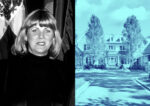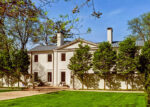When the late Nancy Hughes’ home in Lake Forest came on the market in August for $15 million, it was yet another sign of how well the city’s luxury market was performing. The home had previously sold for $12 million in 2018, with the new list price representing a 25 percent increase.
But when the home finally closed last week after months under contract, the final price was $12.9 million — significantly closer to its last sale price than the ask.
Chicago’s luxury market continues to perform well when measured by deal volume, but what happened at the Lake Forest home isn’t uncommon. Plenty of the city’s biggest richest home sales included steep cuts from their listing prices, meaning many sellers had to shave millions off their asking price to get a deal done.
Rafael Murillo, with RM Luxury Group at Compass, secured a 29 percent decrease from the list price when he repped the buyer of a downtown condo in what he called the “deal of the century.”
His client purchased the River North condo at 676 N Kingsbury Street for $1.6 million, after it was listed for $2.25 million and had previously sold in 2017 for $2.1 million, marking a significant loss for the sellers during a sluggish downtown condo market.
Murillo said his first step in submitting an offer is a call with the seller’s agent to learn more about the sellers, the previous offers they’ve had on the house, and how quickly they need to move.
“You can use this information to your advantage by accommodating their closing needs, but offering less than you would to meet their timeline,” he said. “I have no problem submitting a low offer and encouraging the listing agent to provide a counter offer.”
The trend isn’t just seen on some luxury deals, but often the one’s at the very top. This year’s priciest deals, including the $20 million Trump Tower Chicago penthouse sale that was cut from a $30 million list price, have undergone substantial shaves. In the Gold Coast, a 10,000-square-foot Beaux-Arts style mansion sold for $7 million, almost half the $13.5 million asking price when it was listed two years ago.
The same trend is happening in the North Shore’s suburbs, where a $16 million listing of a century-old lakefront mansion eventually closed for $12.75 million. In August, a six-bedroom, 11,600-square-foot Lake Forest home, known as “La Vieille Maison” hit the market in March 2021 with an asking price of $10.5 million, before it closed on August 1 for $7.5 million. In September, a 6,000-square-foot home in Lake Forest sold for $5 million after originally being listed in May for $6.8 million.
The price cuts don’t mean the luxury market has slowed down, however. Within the city limits, 66 sales closed at $4 million or more last year, according to the Chicago Association of Realtors — that’s the price benchmark the group considers ultra-luxury properties. Through September, there have been 48 such sales in 2022, putting this year only slightly behind last year’s pace by four sales, or a 7 percent dip.
Murillo said his approach was specific to the downtown condo market, a point of weakness in Chicago’s otherwise healthy luxury sector. He said notable exceptions to the condo market’s weak pricing include No 9 Walton, One Chicago, St Regis and Tribune Tower.
“I find that negotiations work out better when the buyer offers a higher price the second time around but moves less during each counter which gets to the seller’s bottom dollar before you get to your buyer’s top dollar,” Murillo said. “Slow and steady wins the race for negotiations.”
Read more



